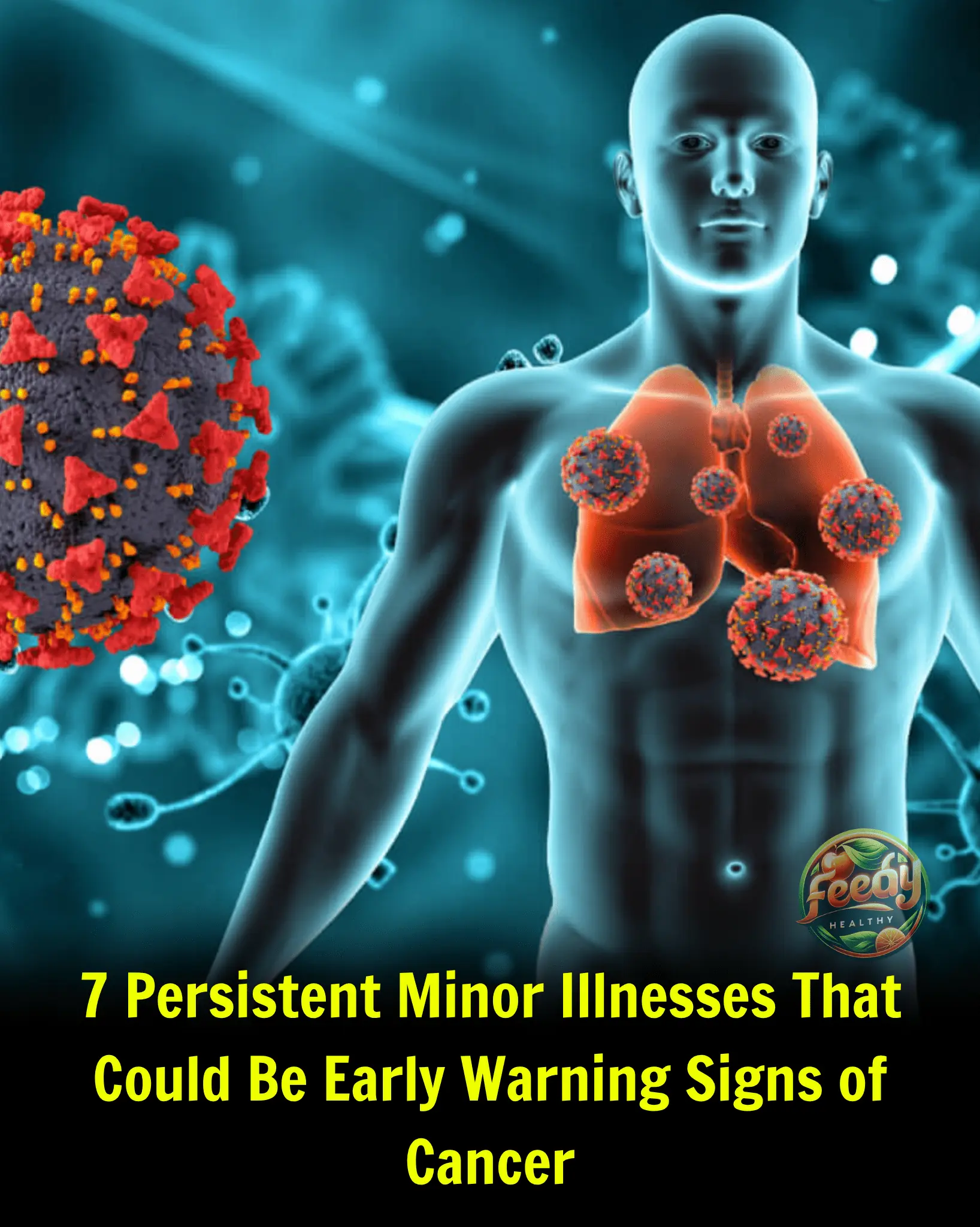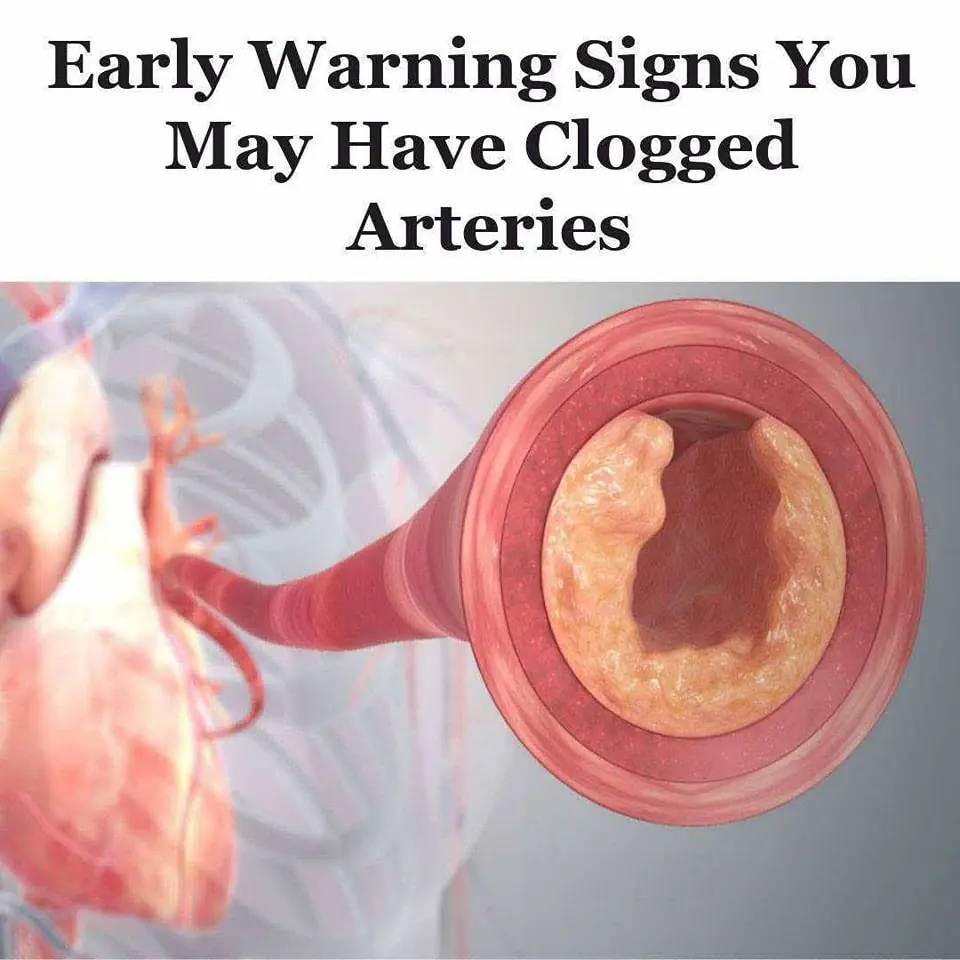
7 Persistent Minor Illnesses That Could Be Early Warning Signs of Cancer

A recent case reported by Aboluowang involved a 48-year-old Chinese man who was diagnosed with late-stage lung cancer. Unfortunately, the patient overlooked several warning signs for more than three months, mistaking them for lingering effects of a common cold.
Mistake #1: Ignoring Persistent Symptoms
The man had suffered from a cold more than three months earlier. After that, he developed a persistent dry cough, which he assumed was just a leftover symptom. He never considered the possibility that it could be something more serious.
Mistake #2: Long-Term Smoking Without Screening
The patient had a 30-year history of smoking, having started at the age of 18, but never underwent a medical checkup. Smoking and long-term lung damage are the leading causes of lung cancer.
Doctors emphasize that lung cancer often gives off warning signals. Here are seven common signs that should not be ignored:
1. Recurring Headaches
Tumors can develop in the brain, either as primary brain cancers like gliomas or meningiomas, or as metastases from other cancers like lung, colorectal, stomach, or breast cancer. Persistent or worsening headaches should be taken seriously and evaluated by a medical professional.
2. Persistent Dry Cough
One of the earliest symptoms of lung cancer is not chest pain or coughing up blood, but a persistent dry cough. This symptom is frequently misattributed to a lingering cold, allergies, or bronchitis, making it easy to dismiss.
3. Ongoing Abdominal Pain
The abdomen contains several major organs—liver, stomach, pancreas, gallbladder, intestines. Cancer in any of these organs can cause persistent abdominal pain that worsens over time. In advanced stages, pain may become severe enough to require medication.
4. Unexplained Weight Loss
If you’re not dieting but suddenly start losing weight for no apparent reason, it could be due to cancer. Cancer cells consume a lot of nutrients, leading to weight loss and, over time, physical weakness and fatigue.
5. Chronic Fatigue
Fatigue is a common symptom in many types of cancer, caused by factors such as anemia, nutritional deficiencies, poor sleep, or the body's immune response. If you're frequently tired without a clear cause, it may be worth getting checked.
6. Frequent Minor Illnesses
Cancer can impair the immune system, leaving the body vulnerable to repeated infections—particularly in the respiratory, digestive, and urinary systems. If you find yourself constantly catching colds or experiencing infections, this could signal a deeper problem.
7. Loss of Appetite
Cancer releases toxins that can suppress appetite. Over time, cancers—whether in the lungs, stomach, colon, or breast—can spread to the liver, the body’s largest digestive organ. Liver metastasis often leads to a noticeable decline in appetite.
Don’t Overlook Unusual Signs Around the Neck
The neck often reflects early changes when the body is under cancerous stress. Pay attention to these unusual symptoms:
A. Skin Color Changes Around the Neck
Darkening of the skin in this area may indicate liver or stomach cancer. Uneven skin tone can suggest toxin buildup, especially if the liver isn’t detoxifying properly.
B. Lumps or Swollen Nodes
Lymph nodes that are larger than 1 cm, painful, hard, or immobile may suggest lymphatic or other cancers. Seek medical advice immediately if such nodes appear.
C. Pus-Filled Pimples or Itchy Rashes
Unusual, persistent rashes or inflamed bumps could be signs of cancerous activity in the body and should not be ignored.
Healthy Habits That Help Prevent Cancer
A strong immune system is your best defense against cancer. Good lifestyle habits can significantly lower your risk:
-
Sleep early and adequately (7–8 hours): The body repairs itself between 11 PM and 3 AM. Disrupted sleep affects cellular recovery.
-
Get regular health checkups: Annual screenings can catch issues in early stages, often before symptoms appear.
In Summary: If you notice persistent, unexplained symptoms—especially involving the neck area—don’t ignore them. Early detection gives you the best chance for successful treatment. Pay attention to your body, and seek medical advice if something doesn’t feel right.
News in the same category


The Anti-Aging Carrot Drink: A Centenarian’s Daily Elixir

THE BENEFITS OF WALKING

Say Goodbye to Urinary Infections, Asthma, Diabetes, Poor Circulation, Fatty Liver, and High Blood Pressure—Naturally!
Dr. Frank Suárez’s Natural Remedy That Could Help Prevent Diabetes, High Blood Pressure, Poor Circulation, and Even Cancer

The 4 Golden Hours to Drink Coffee for Maximum Health Benefits — From Liver Detox to Better Digestion

The Incredible Health Benefits of Goosegrass (Crowfoot Grass)

Hibiscus and Lemon Tea: A Refreshing Remedy with Powerful Health Benefits

With This Natural Mix, I Ended 70 Years of Diabetes and Poor Blood Circulation – No More Pills Needed

Unlock the Hidden Powers of Dandelion Root 🌿✨

GINGER TEA

PLANTAIN: Take Advantage of Its Benefits and Learn How to Use It! 🌿

If You Suffer from Diabetes, High Blood Pressure, High Cholesterol, Inflammation, or Premature Aging — This Simple Homemade Remedy Could Change Your Life

Exploring the Amazing Benefits of Turmeric

Natural Liver Detox Tips

I’m Losing So Much Belly Fat Drinking This All Day! 🌿 My Big Belly Is Gone – Thanks to Ginger!

10 Clues Your Body Might Be Giving You About Clogged Arteries

Warning signs of a heart attack?

8 powerful anti-cancer foods you should start including in your diet
News Post

Unbelievable! ? Destroy Varicose Veins and Inflammation Naturally with Garlic

The plant that helps regulate blood sugar levels, supports the pancreas, and is useful for high blood pressure and Alzheimer's.

Put Lemon with Garlic and You May Never Have to Visit a Hospital Again

Varicose Veins Have Disappeared Without a Trace! No More Foot Pain – 100% Natural Remedy with Red Onion!

The Anti-Aging Carrot Drink: A Centenarian’s Daily Elixir

THE BENEFITS OF WALKING

Say Goodbye to Urinary Infections, Asthma, Diabetes, Poor Circulation, Fatty Liver, and High Blood Pressure—Naturally!
Dr. Frank Suárez’s Natural Remedy That Could Help Prevent Diabetes, High Blood Pressure, Poor Circulation, and Even Cancer

The 4 Golden Hours to Drink Coffee for Maximum Health Benefits — From Liver Detox to Better Digestion

The Incredible Health Benefits of Goosegrass (Crowfoot Grass)

Hibiscus and Lemon Tea: A Refreshing Remedy with Powerful Health Benefits

With This Natural Mix, I Ended 70 Years of Diabetes and Poor Blood Circulation – No More Pills Needed

Unlock the Hidden Powers of Dandelion Root 🌿✨

Discover the Magic of Ginger Tea

THE DRINK THAT CLEARS ALL YOUR CLOGGED VEINS, CURES CANCER AND DIABETES — THIS DRINK WILL HEAL ALL YOUR DISEASES IN THE BLINK OF AN EYE. JUST ONE SERVING AND YOU’LL FEEL YOUR ILLNESSES DISAPPEAR FROM YOUR LIFE

Say goodbye to urinary infections, asthma, diabetes, poor circulation, fatty liver, and high blood pressure

15 best fruits for all health problems

Bay Leaf: The Natural Secret to Youthful Skin!

Natural Remedies for Managing Flu Symptoms
